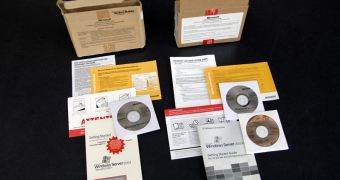No less than 37% of business users unknowingly acquired pirated copies of Microsoft software, including Windows and Office, according to statistics made available by the Redmond company. The software giant reviewed no less than 30 companies and suggested that business users with counterfeit software in their IT infrastructure were actually victims of bootleggers. In this context, the software giant has warned that even professionals can be tricked into taking counterfeit products as genuine, especially high-quality pirated software.
“It’s obvious that the strategy of software pirates is to create high-quality counterfeit software that is designed to deceive. The study reveals just how prevalent the problem is within the business environment. The best way to protect companies is by educating people about software piracy and providing tools to help identify and prevent the risks of counterfeit software before they purchase and install it in their workplace,” revealed Cori Hartje, senior director of Microsoft’s Genuine Software Initiative.
Microsoft indicated that midsize businesses managed to spend no less than $112,439 on pirated software. Companies that had already purchased genuine software spent on average $10,222 for pirated or otherwise unlicensed products. The most consistent danger comes from increasingly sophisticated pirated materials that can easily be taken as genuine products. Microsoft has advised such customers to turn to solutions such as Windows Genuine Advantage and Windows Office Advantage in order to confirm that the software they acquired is indeed genuine.
“Small and midsize businesses become easy, unsuspecting victims of counterfeiters who take advantage of customers looking for a bargain on their software,” Hartje added. “Like larger enterprises, these businesses also wrestle with the demand to maintain and upgrade their software. But when they make their purchases from the least expensive vendor instead of a trusted advisor, they can easily end up with pirated products, ultimately resulting in greater losses through employee downtime and product replacement.”

 14 DAY TRIAL //
14 DAY TRIAL //